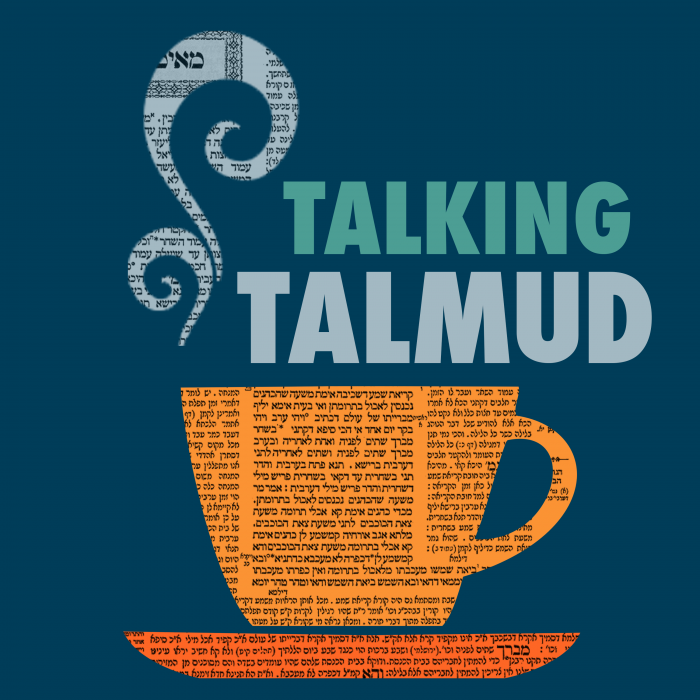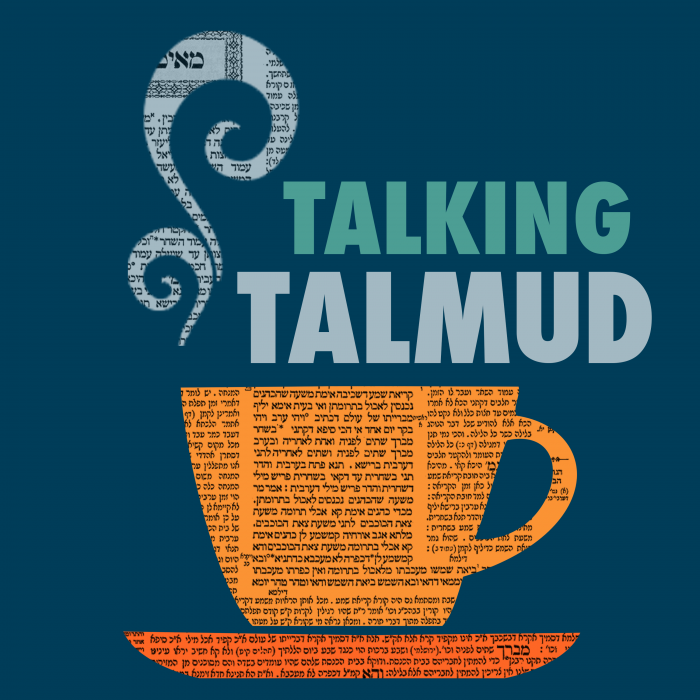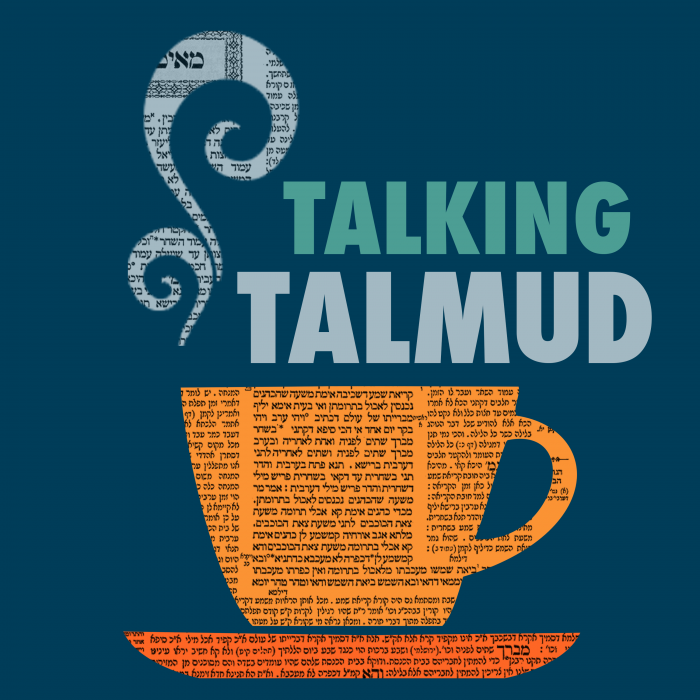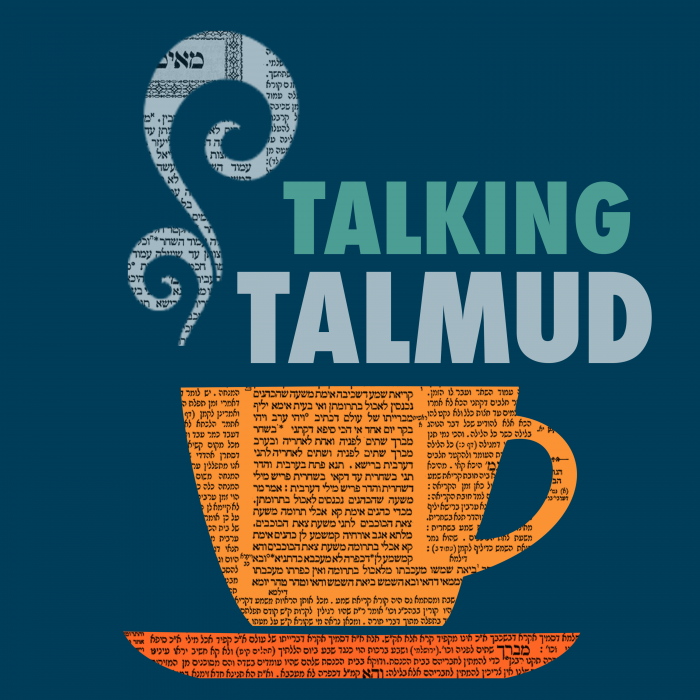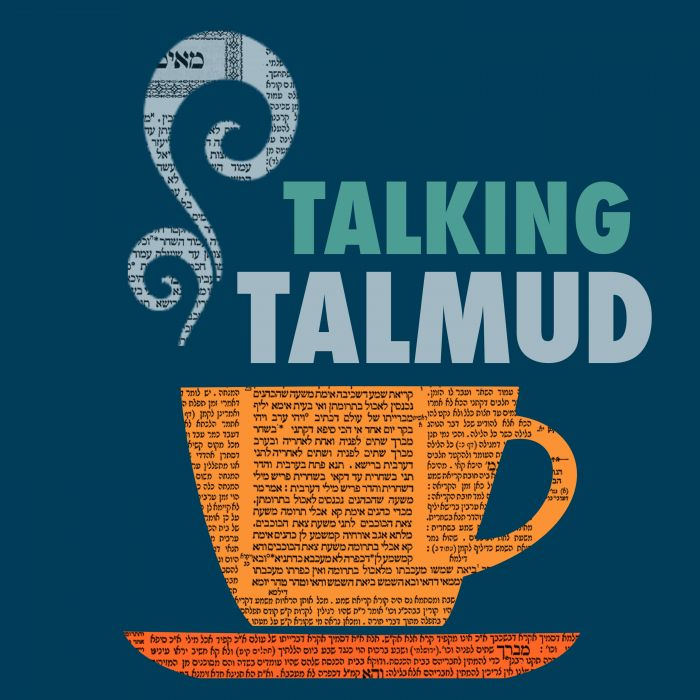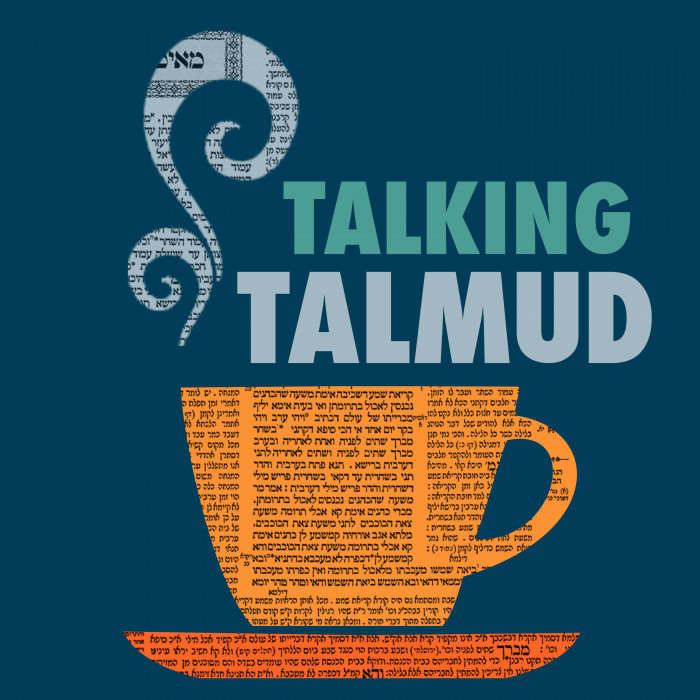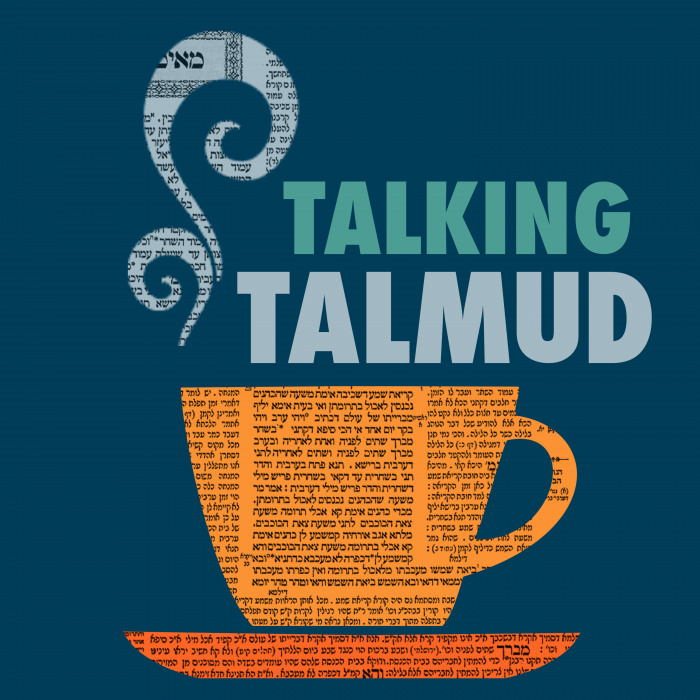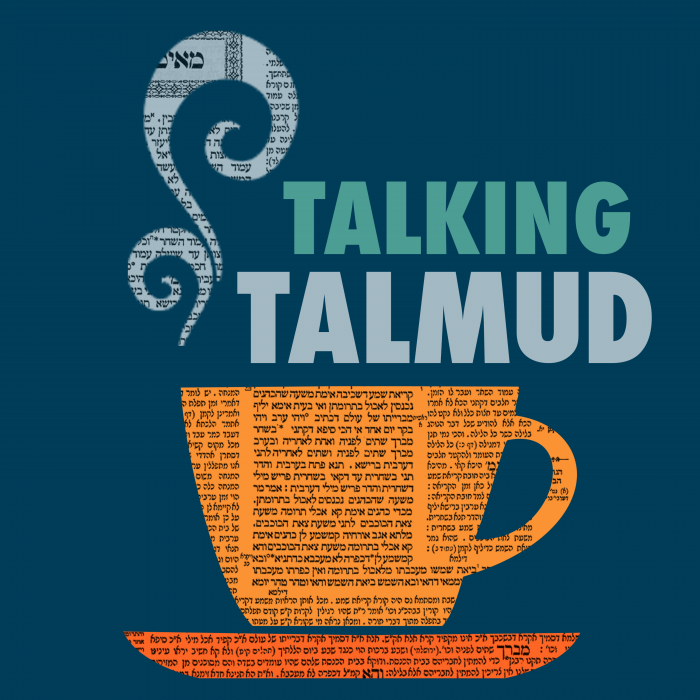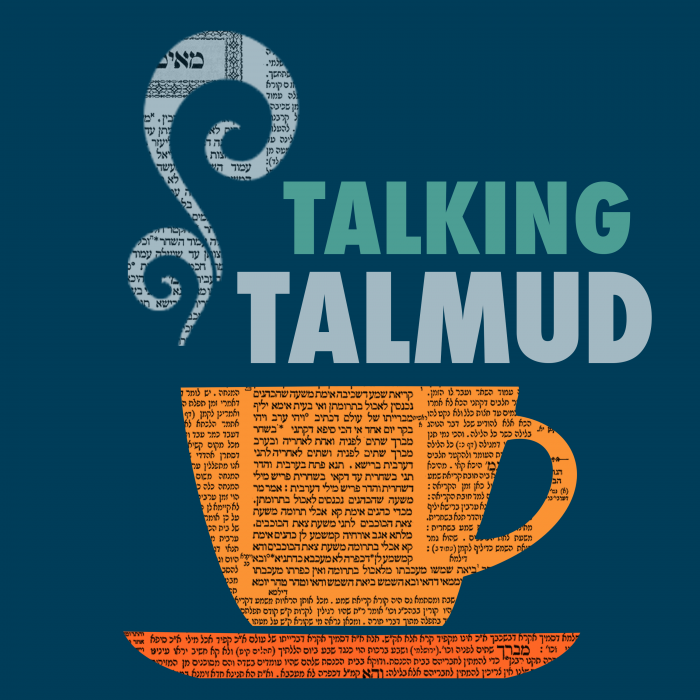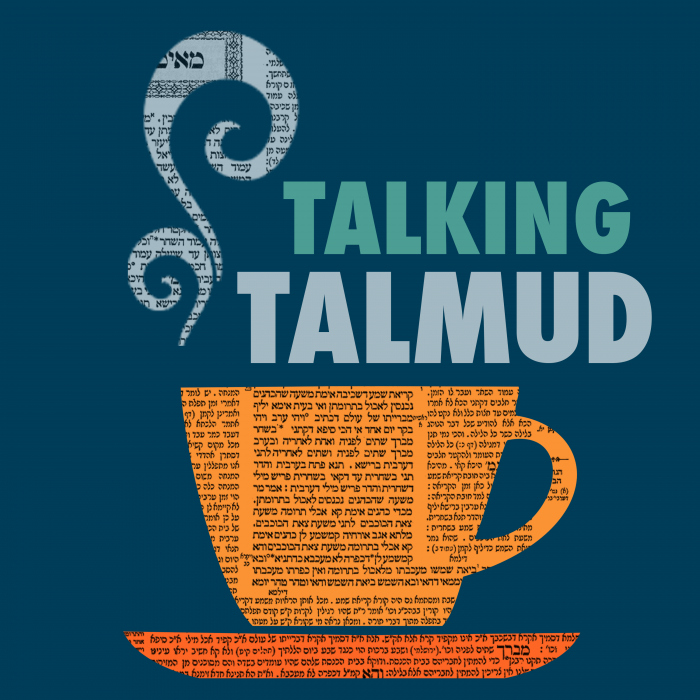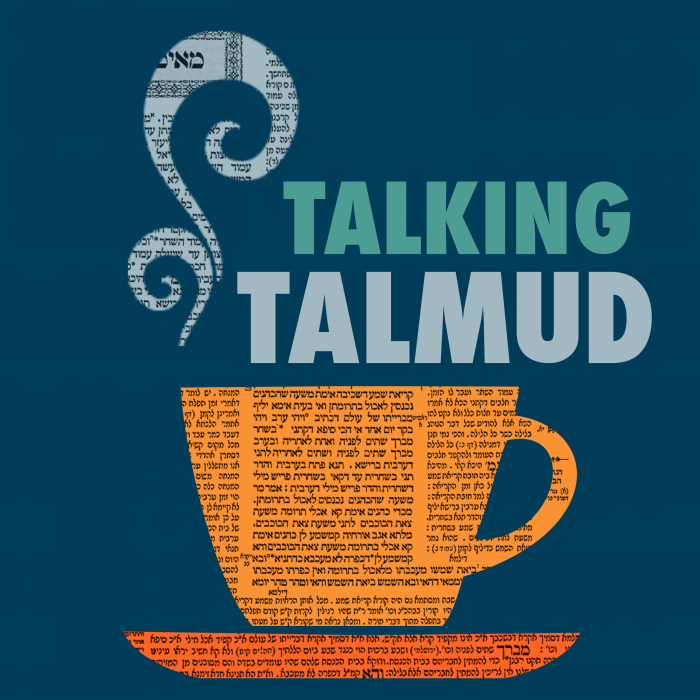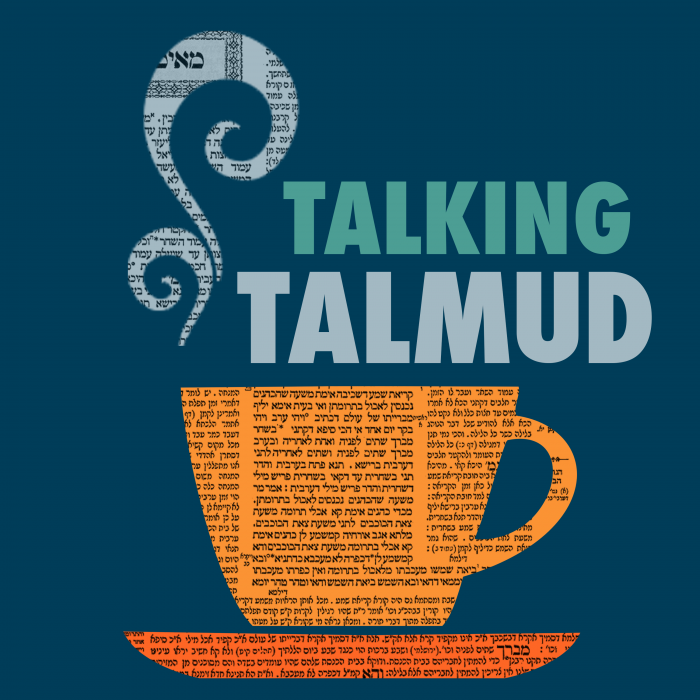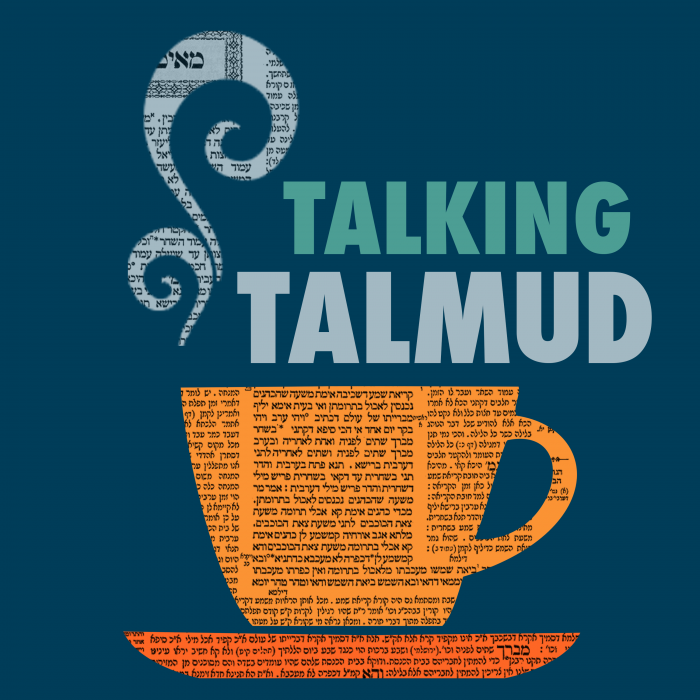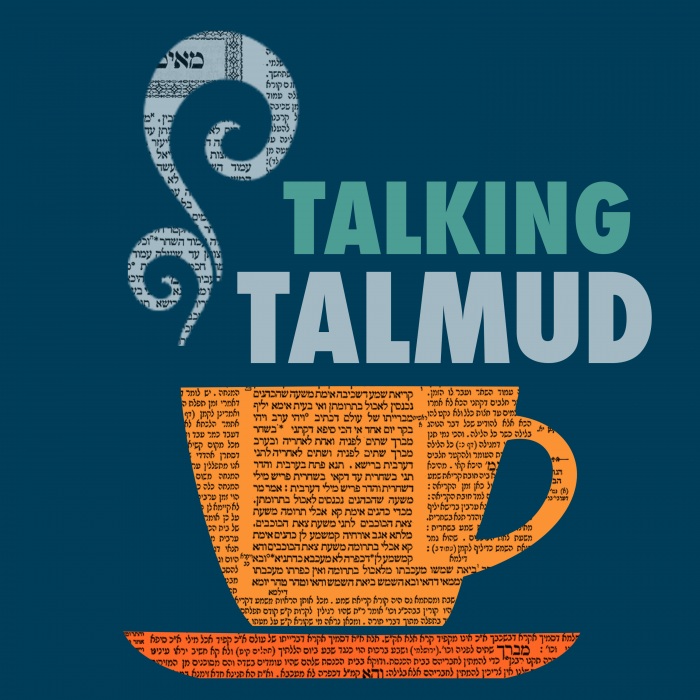Can one recite shema right before and right after sunrise and fulfill both the night and day obligations? Why when the mishna lists mitzvot that can be done all night, it doesn’t list eating the Pesach sacrifice? Rabbi Elazar ben Azaria and Rabbi Akiva have a debate regarding the time one can eat the Pesach sacrifice – midnight or until the end of the night. Why did the Jews borrow jewelry from the Egyptians before they left? Were they happy to do this or not? From when can one read shema in the mornig and until when? Does one need to juxtapose the blessing after shema of redemption to shmone esreh? If so, how does this effect the time whne one can say shema?
This month’s learning is dedicated to the refuah shleima of our dear friend, Phyllis Hecht, גיטל פעשא בת מאשה רחל by all her many friends who love and admire her. Phyllis’ emuna, strength, and positivity are an inspiration.
Want to dedicate learning? Get started here:


Today’s daily daf tools:
This month’s learning is dedicated to the refuah shleima of our dear friend, Phyllis Hecht, גיטל פעשא בת מאשה רחל by all her many friends who love and admire her. Phyllis’ emuna, strength, and positivity are an inspiration.
Today’s daily daf tools:
Delve Deeper
Broaden your understanding of the topics on this daf with classes and podcasts from top women Talmud scholars.
New to Talmud?
Check out our resources designed to help you navigate a page of Talmud – and study at the pace, level and style that fits you.
The Hadran Women’s Tapestry
Meet the diverse women learning Gemara at Hadran and hear their stories.
Berakhot 9
לָא, לְעוֹלָם יְמָמָא הוּא, וְהַאי דְּקָרוּ לֵיהּ ״לֵילְיָא״ — דְּאִיכָּא אִינָשֵׁי דְּגָנוּ בְּהַהִיא שַׁעְתָּא.
The Gemara answers: No, there is no contradiction. Actually, the time just before sunrise is considered day and the fact that it is referred to here as night is because there are people who are still asleep at that time and, if the need arises, it can be characterized as beshokhbekha [when you lie down] despite the fact that it is already day.
אָמַר רַבִּי אַחָא בְּרַבִּי חֲנִינָא, אָמַר רַבִּי יְהוֹשֻׁעַ בֶּן לֵוִי: הֲלָכָה כְּרַבִּי שִׁמְעוֹן שֶׁאָמַר מִשּׁוּם רַבִּי עֲקִיבָא. אָמַר רַבִּי זֵירָא: וּבִלְבַד שֶׁלֹּא יֹאמַר ״הַשְׁכִּיבֵנוּ״.
Rabbi Aḥa, son of Rabbi Ḥanina, said that Rabbi Yehoshua ben Levi said: The halakha is in accordance with the opinion of Rabbi Shimon who said it in the name of Rabbi Akiva. Rabbi Zeira said: As long as he will not recite: Help us lie down [hashkivenu] as well, after reciting the evening Shema before sunrise, as the blessing: Help us lie down, is a prayer that we sleep in peace, which is inappropriate in the morning.
כִּי אֲתָא רַב יִצְחָק בַּר יוֹסֵף, אֲמַר: הָא דְּרַבִּי אַחָא בְּרַבִּי חֲנִינָא אָמַר רַבִּי יְהוֹשֻׁעַ בֶּן לֵוִי, לָאו בְּפֵירוּשׁ אִיתְּמַר, אֶלָּא מִכְּלָלָא אִיתְּמַר.
That is how the halakha was taught in the study hall. However, when Rav Yitzḥak bar Yosef came to Babylonia from Eretz Yisrael, where Rabbi Yehoshua ben Levi lived, he said that this ruling that Rabbi Aḥa, son of Rabbi Ḥanina, said that Rabbi Yehoshua ben Levi said, was not said explicitly by Rabbi Yehoshua ben Levi. Rather, it was stated that he held that the halakha is in accordance with the opinion of Rabbi Shimon who said it in the name of Rabbi Akiva based on inference.
דְּהָהוּא זוּגָא דְּרַבָּנַן דְּאִשְׁתַּכּוּר בְּהִלּוּלָא דִּבְרֵיהּ דְּרַבִּי יְהוֹשֻׁעַ בֶּן לֵוִי. אֲתוֹ לְקַמֵּיהּ דְּרַבִּי יְהוֹשֻׁעַ בֶּן לֵוִי, אֲמַר: כְּדַאי הוּא רַבִּי שִׁמְעוֹן לִסְמוֹךְ עָלָיו בִּשְׁעַת הַדְּחָק.
The incident was as follows: This pair of Sages got drunk at the wedding of Rabbi Yehoshua ben Levi’s son and fell asleep before reciting the evening Shema. By the time they awoke, dawn had already passed. They came before Rabbi Yehoshua ben Levi and asked him if they could still recite the evening Shema. He said to them: Rabbi Shimon is worthy to rely upon in exigent circumstances. Rabbi Yehoshua ben Levi did not rule in accordance with the opinion of Rabbi Shimon, and, in a case where there are no exigent circumstances, one may not rely on this ruling.
מַעֲשֶׂה שֶׁבָּאוּ בָּנָיו וְכוּ׳:
The mishna relates that there was an incident where Rabban Gamliel’s sons returned very late from a wedding hall and they asked their father if they were permitted to recite Shema after midnight.
וְעַד הַשְׁתָּא לָא שְׁמִיעַ לְהוּ הָא דְּרַבָּן גַּמְלִיאֵל?!
The Gemara asks: And until now, had they not heard this halakha of Rabban Gamliel? Were they unaware that he held that one is permitted to recite the evening Shema after midnight?
הָכִי קָאָמְרִי לֵיהּ: רַבָּנַן פְּלִיגִי עִילָּווֹךְ, וְיָחִיד וְרַבִּים, הֲלָכָה כְּרַבִּים, אוֹ דִּלְמָא רַבָּנַן כְּווֹתָךְ סְבִירָא לְהוּ, וְהַאי דְּקָאָמְרִי ״עַד חֲצוֹת״ — כְּדֵי לְהַרְחִיק אָדָם מִן הָעֲבֵירָה. אָמַר לְהוּ: רַבָּנָן כְּווֹתִי סְבִירָא לְהוּ, וְחַיָּיבִין אַתֶּם. וְהַאי דְּקָאָמְרִי ״עַד חֲצוֹת״ — כְּדֵי לְהַרְחִיק אָדָם מִן הָעֲבֵירָה.
The Gemara answers that Rabban Gamliel’s sons did not ask him his opinion. Rather, they said to him as follows: Do the Rabbis fundamentally disagree with you concerning this halakha, holding that Shema may be recited only until midnight? If so, when there is a disagreement between an individual Sage and many Sages, the halakha is in accordance with the opinion of the many, in which case we must, in practice, follow the opinion of the Rabbis. Or perhaps, do the Rabbis hold in accordance with your opinion that the time of the evening Shema extends throughout the night, and that which they say that it may only be recited until midnight is in order to distance a person from transgression? If the latter is true, then, when there are extenuating circumstances, one may recite the evening Shema after midnight. Rabban Gamliel replied to his sons: The Rabbis agree with me and you are still obligated to recite Shema. The Rabbis say that Shema may only be recited until midnight in order to distance a person from transgression, but, after the fact, even the Rabbis permit recitation after midnight.
וְלֹא זוֹ בִּלְבַד אָמְרוּ, אֶלָּא וְכוּ׳:
We learned in the mishna that Rabban Gamliel told his sons: And that is not only with regard to the halakha of the recitation of Shema, but, rather, wherever the Rabbis say until midnight, the mitzva may be performed until dawn.
וְרַבָּן גַּמְלִיאֵל מִי קָאָמַר ״עַד חֲצוֹת״ דְּקָתָנֵי ״וְלֹא זוֹ בִּלְבַד אָמְרוּ״?
The Gemara questions the formulation of the mishna: Does Rabban Gamliel say until midnight, that he teaches: And not only did they say? Rabban Gamliel does not restrict the time for the recitation of Shema until midnight, so why does he say, and not only do they say, implying that he agrees with that stringency?
הָכִי קָאָמַר לְהוּ רַבָּן גַּמְלִיאֵל לִבְנֵיהּ: אֲפִילּוּ לְרַבָּנַן דְּקָאָמְרִי ״עַד חֲצוֹת״, מִצְוָתָהּ עַד שֶׁיַּעֲלֶה עַמּוּד הַשַּׁחַר. וְהַאי דְּקָא אָמְרִי עַד חֲצוֹת — כְּדֵי לְהַרְחִיק אָדָם מִן הָעֲבֵירָה.
The Gemara explains that this is what Rabban Gamliel said to his sons: Even according to the Rabbis, who say that the mitzva may be performed only until midnight, the biblical obligation to perform the mitzva continues until dawn, and that which they say that it may only be recited until midnight is in order to distance a person from transgression.
הֶקְטֵר חֲלָבִים וְכוּ׳.
In the mishna, Rabban Gamliel cites several cases where a mitzva may be performed until dawn; among them, the burning of fats and limbs on the altar.
וְאִילּוּ אֲכִילַת פְּסָחִים לָא קָתָנֵי.
The Gemara notes: In our mishna, the eating of the Paschal lamb was not taught among those mitzvot that may be performed until dawn, indicating that the mitzva of eating the Paschal lamb does not extend until dawn.
וּרְמִינְהִי: קְרִיאַת שְׁמַע עַרְבִית, וְהַלֵּל בְּלֵילֵי פְּסָחִים, וַאֲכִילַת פֶּסַח, מִצְוָתָן עַד שֶׁיַּעֲלֶה עַמּוּד הַשַּׁחַר!
The Gemara raises a contradiction to this conclusion based on a baraita: The mitzvot of the recitation of the evening Shema, the recitation of hallel on the nights of Passover accompanying the sacrifice of the Paschal lamb, as well as eating the Paschal lamb, may all be performed until dawn.
אָמַר רַב יוֹסֵף: לָא קַשְׁיָא: הָא רַבִּי אֶלְעָזָר בֶּן עֲזַרְיָה, הָא רַבִּי עֲקִיבָא. דְּתַנְיָא: ״וְאָכְלוּ אֶת הַבָּשָׂר בַּלַּיְלָה הַזֶּה״, רַבִּי אֶלְעָזָר בֶּן עֲזַרְיָה אוֹמֵר: נֶאֱמַר כָּאן ״בַּלַּיְלָה הַזֶּה״, וְנֶאֱמַר לְהַלָּן: ״וְעָבַרְתִּי בְאֶרֶץ מִצְרַיִם בַּלַּיְלָה הַזֶּה״, מַה לְּהַלָּן עַד חֲצוֹת, אַף כָּאן עַד חֲצוֹת.
Rav Yosef said: This is not difficult as these two sources reflect two conflicting opinions. This, our mishna, is in accordance with the opinion of Rabbi Elazar ben Azarya. While this, the baraita, is in accordance with the opinion of Rabbi Akiva. As it was taught in a baraita with regard to the verse discussing the mitzva to eat the Paschal lamb: “And they shall eat of the meat on that night; roasted over fire and matzot with bitter herbs shall they eat it” (Exodus 12:8); Rabbi Elazar ben Azarya says: Here it is stated: “On that night,” from which we cannot determine when night ends. The same expression is encountered later in the same chapter: “And I will pass through the land of Egypt on that night and I will strike every firstborn in the land of Egypt, from person to animal” (Exodus 12:12). We know when the firstborns were struck down based on the verse “Thus said the Lord: At about midnight, I will go out into the midst of Egypt and every firstborn in Egypt shall die” (Exodus 11:4–5). Therefore, just as in the verse below, the striking of the firstborns took place until midnight, as stated explicitly in the verse, so too in the verse here, the mitzva to eat the Paschal lamb continues until midnight.
אָמַר לֵיהּ רַבִּי עֲקִיבָא: וַהֲלֹא כְּבָר נֶאֱמַר ״בְּחִפָּזוֹן״, עַד שְׁעַת חִפָּזוֹן. אִם כֵּן מָה תַּלְמוּד לוֹמַר ״בַּלַּיְלָה״?
Rabbi Akiva said to him: Was it not already said, “Thus you shall eat it, with your loins girded, your shoes on your feet, your staffs in your hands and you will eat it in haste for it is the Paschal offering for the Lord” (Exodus 12:11)? Therefore the Paschal lamb may be eaten until the time of haste. Since the time of haste is when Israel left Egypt, and it is said, “You will not leave, every man from his house, until the morning,” then the Paschal lamb may be eaten until dawn. If that is so, why does the verse state: On that night?
יָכוֹל יְהֵא נֶאֱכָל כְּקָדָשִׁים בַּיּוֹם תַּלְמוּד לוֹמַר ״בַּלַּיְלָה״, בַּלַּיְלָה הוּא נֶאֱכָל, וְלֹא בַּיּוֹם.
The Gemara explains that the phrase on that night is necessary because without it I might have thought that the Paschal lamb is eaten during the day, like all other sacrifices, which must all be slaughtered and eaten during the day. Therefore, the verse states: On that night, to underscore that this particular sacrifice is eaten at night and not during the day.
Essentially, the difference between these two opinions revolves around which word they deemed significant. Rabbi Elazar ben Azarya considered the word night as the key word, while Rabbi Akiva considered the word haste as the key word. The Gemara begins to analyze their statements.
בִּשְׁלָמָא לְרַבִּי אֶלְעָזָר בֶּן עֲזַרְיָה דְּאִית לֵיהּ גְּזֵירָה שָׁוָה, אִצְטְרִיךְ לְמִכְתַּב לֵיהּ ״הַזֶּה״. אֶלָּא לְרַבִּי עֲקִיבָא הַאי ״הַזֶּה״ מַאי עָבֵיד לֵיהּ?
Granted, according to Rabbi Elazar ben Azarya, who has the tradition of a verbal analogy between the phrase, on that night, with regard to the eating of the Paschal lamb and the phrase, on that night, with regard to the striking of the firstborn in Egypt, it was necessary for the verse to write “that” in order to indicate that these times are parallel. However, according to Rabbi Akiva, who has no such tradition, what does he do with “that”? Why is it necessary to emphasize on that night?
לְמַעוֹטֵי לַיְלָה אַחֵר הוּא דַּאֲתָא, סָלְקָא דַּעְתָּךְ אָמֵינָא: הוֹאִיל וּפֶסַח קָדָשִׁים קַלִּים, וּשְׁלָמִים קָדָשִׁים קַלִּים, מָה שְׁלָמִים נֶאֱכָלִין לִשְׁנֵי יָמִים וְלַיְלָה אֶחָד — אַף פֶּסַח נֶאֱכָל שְׁתֵּי לֵילוֹת בִּמְקוֹם שְׁנֵי יָמִים, וִיהֵא נֶאֱכָל לִשְׁנֵי לֵילוֹת וְיוֹם אֶחָד. קָמַשְׁמַע לָן ״בַּלַּיְלָה הַזֶּה״, בַּלַּיְלָה הַזֶּה הוּא נֶאֱכָל וְאֵינוֹ נֶאֱכָל בְּלַיְלָה אַחֵר.
The Gemara answers: On that night comes to exclude another night, as one might otherwise have concluded that the Paschal lamb may be eaten for two nights. It would have entered your mind to say: Since the Paschal lamb falls into the category of sacrifices of lesser sanctity, and peace-offerings are also sacrifices of lesser sanctity, just as peace-offerings may be eaten for two days and one night, i.e., the day that they are sacrificed through the following day, as we learned in the Torah, so too the Paschal lamb may be eaten for two nights instead of two days. In other words, one might otherwise mistakenly conclude from its parallel to peace-offerings, that the Paschal lamb is to be eaten for two nights and the day between them. Therefore, the verse teaches us specifically on that night, i.e., on that night it is eaten, and it is not eaten on another night.
וְרַבִּי אֶלְעָזָר בֶּן עֲזַרְיָה
The Gemara asks: If so, from where does Rabbi Elazar ben Azarya derive that the Paschal lamb cannot be eaten for two nights?
מִ״לֹּא תוֹתִירוּ עַד בֹּקֶר״ נָפְקָא.
The Gemara answers: Rabbi Elazar ben Azarya derives this conclusion from the verse: “It should not remain until the morning” (Exodus 12:10). If one is prohibited from leaving over any part of the sacrifice until the morning, he is certainly prohibited from leaving it over until the following night. Therefore, it is unnecessary to cite an additional source to teach that the Paschal lamb may only be eaten on the first night.
וְרַבִּי עֲקִיבָא — אִי מֵהָתָם, הֲוָה אָמֵינָא מַאי ״בֹּקֶר״ — בֹּקֶר שֵׁנִי.
And why does Rabbi Akiva require “that” to derive that the Paschal lamb may not be eaten on the second night? According to Rabbi Akiva, if it was derived from the verse: “It should not remain until the morning,” I would have said: What is the meaning of morning? It means the second morning, as the Torah does not specify until which morning the Paschal lamb may not be left; until the first morning or the second morning. Therefore, the Torah needed to write on that night and no other.
וְרַבִּי אֶלְעָזָר אָמַר לָךְ: כָּל ״בֹּקֶר״ — בֹּקֶר רִאשׁוֹן הוּא.
And what would Rabbi Elazar ben Azarya respond? He could have said to you: If it is not otherwise noted, every unmodified mention of the word morning in the Bible refers to the first, i.e., the next, morning. If that were not the case, no biblical text could have any definite meaning.
וְהָנֵי תַּנָּאֵי כְּהָנֵי תַּנָּאֵי. דְּתַנְיָא, ״שָׁם תִּזְבַּח אֶת הַפֶּסַח בָּעָרֶב כְּבוֹא הַשֶּׁמֶשׁ מוֹעֵד צֵאתְךָ מִמִּצְרָיִם״.
Concerning the tannaitic dispute between Rabbi Akiva and Rabbi Elazar ben Azarya regarding until when the Paschal lamb may be eaten, the Gemara remarks: The dispute between these tanna’im is parallel to the dispute between those tanna’im, who disagree over the same issue. As it was taught in a baraita with regard to the verse: “There you will offer the Paschal lamb, in the evening when the sun sets at the time when you left the land of Egypt” (Deuteronomy 16:6). Upon closer examination, it seems that this verse mentions three distinct times: In the evening, refers to the afternoon until sunset; when the sun sets, refers to the time of sunset itself; and the time when you left the land of Egypt refers to, as explained in Exodus, the early hours of the morning. Therefore it seems that these times parallel the different stages of the mitzva of the Paschal lamb, and it is regarding these details that the tanna’im disagree.
רַבִּי אֱלִיעֶזֶר אוֹמֵר: ״בָּעֶרֶב״ אַתָּה זוֹבֵחַ, וּ״כְבוֹא הַשֶּׁמֶשׁ״ אַתָּה אוֹכֵל, וּ״מוֹעֵד צֵאתְךָ מִמִּצְרָיִם״ אַתָּה שׂוֹרֵף. רַבִּי יְהוֹשֻׁעַ אוֹמֵר ״בָּעֶרֶב״ אַתָּה זוֹבֵחַ ״כְּבוֹא הַשֶּׁמֶשׁ״ אַתָּה אוֹכֵל וְעַד מָתַי אַתָּה אוֹכֵל וְהוֹלֵךְ — עַד ״מוֹעֵד צֵאתְךָ מִמִּצְרָיִם״.
Rabbi Eliezer says: In the evening, the afternoon, you slaughter the sacrifice, from when the sun sets until midnight you eat it, and at the time when you left the land of Egypt you burn what remains from the sacrifice, in accordance with the opinion of Rabbi Elazar ben Azarya.
Rabbi Yehoshua says: In the evening, the afternoon, you slaughter the sacrifice, from when the sun sets, you eat it. And until when do you continue eating? Until the time when you left the land of Egypt, meaning until morning, in accordance with the opinion of Rabbi Akiva.
אָמַר רַבִּי אַבָּא: הַכֹּל מוֹדִים כְּשֶׁנִּגְאֲלוּ יִשְׂרָאֵל מִמִּצְרַיִם, לֹא נִגְאֲלוּ אֶלָּא בָּעֶרֶב, שֶׁנֶּאֱמַר: ״הוֹצִיאֲךָ ה׳ אֱלֹהֶיךָ מִמִּצְרַיִם לָיְלָה״, וּכְשֶׁיָּצְאוּ — לֹא יָצְאוּ אֶלָּא בַּיּוֹם, שֶׁנֶּאֱמַר: ״מִמָּחֳרַת הַפֶּסַח יָצְאוּ בְנֵי יִשְׂרָאֵל בְּיָד רָמָה״.
The Gemara cites an alternative explanation of the dispute between Rabbi Elazer ben Azarya and Rabbi Akiva. Rabbi Abba said: Everyone agrees that when the children of Israel were redeemed from Egypt were given permission to leave, they were redeemed only in the evening, as it is stated: “In the spring the Lord, your God, took you out from Egypt at night” (Deuteronomy 16:1). And when they actually left, they left only during the day, as it is stated: “On the fifteenth of the first month, on the day after the offering of the Paschal lamb, the children of Israel went out with a high hand before the eyes of Egypt” (Numbers 33:3), indicating that they actually went out during the day.
עַל מָה נֶחְלְקוּ — עַל שְׁעַת חִפָּזוֹן, רַבִּי אֶלְעָזָר בֶּן עֲזַרְיָה סָבַר: מַאי ״חִפָּזוֹן״ — חִפָּזוֹן דְּמִצְרַיִם.
However, with regard to what did they disagree? They disagreed with regard to the time of haste, as it is written: “You will eat it in haste for it is the Paschal offering for the Lord” (Exodus 12:11). Rabbi Elazar ben Azarya held: What is the meaning of haste? It is the haste of the Egyptians at midnight, as they hurried to the houses of the people of Israel to send them away, in fear of the plague of the firstborn.
וְרַבִּי עֲקִיבָא סָבַר: מַאי ״חִפָּזוֹן״ — חִפָּזוֹן דְּיִשְׂרָאֵל.
And Rabbi Akiva held: What is the meaning of haste? It is the haste of Israel in the morning, as they rushed to leave Egypt.
תַּנְיָא נָמֵי הָכִי: ״הוֹצִיאֲךָ ה׳ אֱלֹהֶיךָ מִמִּצְרַיִם לָיְלָה״: וְכִי בַּלַּיְלָה יָצְאוּ? וַהֲלֹא לֹא יָצְאוּ אֶלָּא בַּיּוֹם, שֶׁנֶּאֱמַר: ״מִמָּחֳרַת הַפֶּסַח יָצְאוּ בְנֵי יִשְׂרָאֵל בְּיָד רָמָה״! אֶלָּא, מְלַמֵּד שֶׁהִתְחִילָה לָהֶם גְּאוּלָּה מִבָּעֶרֶב.
Similar to Rabbi Abba’s statement, it was also taught in a baraita, regarding the verse: “The Lord, your God, took you out from Egypt at night,” the question arises: Did they leave at night? Didn’t they leave during the day, as it is stated: “On the day after the offering of the Paschal lamb, the children of Israel went out with a high hand”? Rather, this teaches that the redemption began for them in the evening.
״דַּבֶּר נָא בְּאָזְנֵי הָעָם״ וְגוֹ׳. אָמְרִי דְּבֵי רַבִּי יַנַּאי: אֵין ״נָא״ אֶלָּא לְשׁוֹן בַּקָּשָׁה, אָמַר לֵיהּ הַקָּדוֹשׁ בָּרוּךְ הוּא לְמֹשֶׁה: בְּבַקָּשָׁה מִמְּךָ, לֵךְ וֶאֱמוֹר לָהֶם לְיִשְׂרָאֵל: בְּבַקָּשָׁה מִכֶּם, שַׁאֲלוּ מִמִּצְרַיִם כְּלֵי כֶסֶף וּכְלֵי זָהָב, שֶׁלֹּא יֹאמַר
Since the last topic discussed in the Gemara revolved around the exodus from Egypt, the Gemara cites additional aggadic midrash on that subject. With regard to the verse: “Speak, please [na] in the ears of the people, and they should borrow, every man from his fellow and every woman from her fellow, silver and gold vessels” (Exodus 11:2), the word please [na] is unclear. The students of the school of Rabbi Yannai said: Please [na] is nothing more than an expression of supplication. Why would God employ an expression of supplication in approaching Israel? The Gemara explains that the Holy One, Blessed be He, said to Moses: I beseech you, go and tell Israel: I beseech you; borrow vessels of silver and vessels of gold from the Egyptians in order to fulfill the promise I made to Abraham in the “Covenant between the Pieces,” so that
אוֹתוֹ צַדִּיק, ״וַעֲבָדוּם וְעִנּוּ אֹתָם״ — קִייֵּם בָּהֶם, ״וְאַחֲרֵי כֵן יֵצְאוּ בִּרְכֻשׁ גָּדוֹל״ — לֹא קִייֵּם בָּהֶם.
that righteous person, Abraham, will not say: God fulfilled His pronouncement: “And they will be enslaved and afflicted,” but God did not fulfill His pronouncement: “And afterward, they will leave with great possessions.” As God said to Abraham: “Surely you shall know that your descendants will be foreigners in a land that is not theirs, and they will be enslaved and afflicted for four hundred years. And also that nation who enslaves them will I judge. And afterward, they will leave with great possessions” (Genesis 15:13–14).
אָמְרוּ לוֹ: וּלְוַאי שֶׁנֵּצֵא בְּעַצְמֵנוּ! מָשָׁל: לְאָדָם שֶׁהָיָה חָבוּשׁ בְּבֵית הָאֲסוּרִים וְהָיוּ אוֹמְרִים לוֹ בְּנֵי אָדָם: מוֹצִיאִין אוֹתְךָ לְמָחָר מִבֵּית הָאֲסוּרִין, וְנוֹתְנִין לְךָ מָמוֹן הַרְבֵּה, וְאוֹמֵר לָהֶם: בְּבַקָּשָׁה מִכֶּם, הוֹצִיאוּנִי הַיּוֹם, וְאֵינִי מְבַקֵּשׁ כְּלוּם.
The school of Rabbi Yannai continues: Israel said to Moses: If only we could get out ourselves. The Gemara offers a parable to one who was incarcerated in prison, and people would say to him: We promise, we will release you tomorrow and give you much money. He says to them: I beseech you, release me today and I ask for nothing. So too, Israel preferred leaving immediately empty handed rather than leaving later with great riches.
״וַיַּשְׁאִלוּם״, אָמַר רַבִּי אַמֵּי: מְלַמֵּד שֶׁהִשְׁאִילוּם בְּעַל כָּרְחָם. אִיכָּא דְאָמְרִי בְּעַל כָּרְחָם דְּמִצְרַיִם, וְאִיכָּא דְאָמְרִי בְּעַל כָּרְחָם דְּיִשְׂרָאֵל.
With regard to the spoils taken from Egypt described in the verse: “And the Lord gave the nation grace in the eyes of Egypt, and they gave them what they requested and they emptied Egypt” (Exodus 12:36), Rabbi Ami said: This teaches that the Egyptians gave them what they requested against their will. There is a dispute with regard to the question: Against whose will? Some say it was given against the will of the Egyptians, and some say it was given against the will of Israel. The proponent of each position cites support for his opinion.
מַאן דְּאָמַר בְּעַל כָּרְחָם דְּמִצְרַיִם — דִּכְתִיב: ״וּנְוַת בַּיִת תְּחַלֵּק שָׁלָל״. מַאן דְּאָמַר בְּעַל כָּרְחָם דְּיִשְׂרָאֵל — מִשּׁוּם מַשּׂוֹי.
The one who said that it was given against the will of the Egyptians cites the verse describing Israel’s exit from Egypt, as it is written: “And she who tarries at home divides the spoils” (Psalms 68:13). That which the woman in the verse requested from her counterpart was actually spoils taken against the will of an enemy. The one who said that it was given against the will of Israel, claims that they did not want the vessels because of the burden of carrying a heavy load on a long journey.
״וַיְנַצְּלוּ אֶת מִצְרָיִם״. אָמַר רַבִּי אַמֵּי מְלַמֵּד שֶׁעֲשָׂאוּהָ כִּמְצוּדָה שֶׁאֵין בָּהּ דָּגָן, וְרֵישׁ לָקִישׁ אָמַר, עֲשָׂאוּהָ כִּמְצוּלָה שֶׁאֵין בָּהּ דָּגִים.
With regard to the continuation of the verse: And they emptied Egypt, Rabbi Ami said: This indicates that they made Egypt like a trap in which there is no grain that serves as bait to attract birds. Reish Lakish said: They made Egypt like an abyss in the sea without fish.
״אֶהְיֶה אֲשֶׁר אֶהְיֶה״, אָמַר לוֹ הַקָּדוֹשׁ בָּרוּךְ הוּא לְמֹשֶׁה, לֵךְ אֱמוֹר לָהֶם לְיִשְׂרָאֵל: אֲנִי הָיִיתִי עִמָּכֶם בְּשִׁעְבּוּד זֶה, וַאֲנִי אֶהְיֶה עִמָּכֶם בְּשִׁעְבּוּד מַלְכֻיוֹת.
The Gemara proceeds to discuss the promise of redemption from Egypt that God made to Moses at the burning bush. When Moses asked God what to say when Israel asks him God’s name, “and God said to Moses: ‘I will be that I will be,’ and He said: ‘Thus you will say unto the children of Israel: I will be has sent me to you’” (Exodus 3:14). The Holy One, Blessed be He, told Moses to go and tell Israel: I was with you in this enslavement, and in this redemption, and I will be with you in the enslavement of the kingdoms in the future.
אָמַר לְפָנָיו: רִבּוֹנוֹ שֶׁל עוֹלָם, דַּיָּה לַצָּרָה בִּשְׁעָתָהּ. אָמַר לוֹ הַקָּדוֹשׁ בָּרוּךְ הוּא: לֵךְ אֱמוֹר לָהֶם ״אֶהְיֶה שְׁלָחַנִי אֲלֵיכֶם״.
Moses said before Him: Master of the Universe, it is enough for them to endure. Let the future suffering be endured at its appointed time. There is no need to mention their future enslavement. The Holy One, Blessed be He, agreed with Moses and said to him: Go and tell the children of Israel only that, “I will be has sent me to you.”
״עֲנֵנִי ה׳ עֲנֵנִי״. אָמַר רַבִּי אֲבָהוּ: לָמָה אָמַר אֵלִיָּהוּ עֲנֵנִי שְׁתֵּי פְּעָמִים? מְלַמֵּד שֶׁאָמַר אֵלִיָּהוּ לִפְנֵי הַקָּדוֹשׁ בָּרוּךְ הוּא: רִבּוֹנוֹ שֶׁל עוֹלָם, ״עֲנֵנִי״ — שֶׁתֵּרֵד אֵשׁ מִן הַשָּׁמַיִם וְתֹאכַל כָּל אֲשֶׁר עַל הַמִּזְבֵּחַ, וַ״עֲנֵנִי״ — שֶׁתַּסִּיחַ דַּעְתָּם, כְּדֵי שֶׁלֹּא יֹאמְרוּ מַעֲשֵׂה כְשָׁפִים הֵם. שֶׁנֶּאֱמַר: ״וְאַתָּה הֲסִבֹּתָ אֶת לִבָּם אֲחוֹרַנִּית״:
Having explained the use of the double language of “I will be that I will be,” the Gemara proceeds to explain the double language employed by Elijah on Mount Carmel: “Answer me, Lord, answer me, that this people will know that You are the Lord, God, and You have turned their hearts backward” (I Kings 18:37). Rabbi Abbahu said: Why did Elijah say answer me twice? This repetition teaches that Elijah said before the Holy One, Blessed be He: Master of the Universe, answer me that fire will descend from heaven and consume everything that is on the altar, and answer me that You will divert their mind from devising alternative explanations for what they witnessed so that they will not say that they were acts of sorcery. As it is stated that Elijah said: “And You have turned their hearts backward,” God can restore them to the proper path as well.
מַתְנִי׳ מֵאֵימָתַי קוֹרִין אֶת שְׁמַע בְּשַׁחֲרִית? מִשֶּׁיַּכִּיר בֵּין תְּכֵלֶת לְלָבָן. רַבִּי אֱלִיעֶזֶר אוֹמֵר: בֵּין תְּכֵלֶת לְכָרָתֵי. וְגוֹמְרָהּ, עַד הָנֵץ הַחַמָּה, רַבִּי יְהוֹשֻׁעַ אוֹמֵר עַד שָׁלֹשׁ שָׁעוֹת, שֶׁכֵּן דֶּרֶךְ מְלָכִים לַעֲמוֹד בְּשָׁלֹשׁ שָׁעוֹת.
MISHNA: From when does one recite Shema in the morning? From when a person can distinguish between sky-blue [tekhelet] and white.
Rabbi Eliezer says: From when one can distinguish between sky-blue and leek-green.
And one must finish reciting Shema until the end of the period when you rise, i.e., sunrise, when the sun begins to shine.
Rabbi Yehoshua says: One may recite the morning Shema until three hours of the day, which this is still considered when you rise, as that is the habit of kings to rise from their sleep at three hours of the day.
הַקּוֹרֵא מִכָּאן וְאֵילָךְ — לֹא הִפְסִיד, כְּאָדָם הַקּוֹרֵא בַּתּוֹרָה.
While there is a set time frame for the recitation of Shema, one who recites Shema from that time onward loses nothing. Although he does not fulfill the mitzva of reciting of Shema at its appointed time, he is nevertheless considered like one who reads the Torah, and is rewarded accordingly.
גְּמָ׳ מַאי בֵּין תְּכֵלֶת לְלָבָן? אִילֵּימָא בֵּין גְּבָבָא דְעַמְרָא חִיוָּרָא לִגְבָבָא דְעַמְרָא דִתְכֵלְתָּא — הָא בְּלֵילְיָא נָמֵי מִידָּע יָדְעִי. אֶלָּא, בֵּין תְּכֵלֶת שֶׁבָּהּ לְלָבָן שֶׁבָּהּ.
GEMARA: The mishna stated that the time for the recitation of the morning Shema begins when one can distinguish between sky-blue and white. The Gemara asks: To what is between sky-blue and white referring? If you say that it means distinguishing between a pile of white wool and a pile of sky-blue wool, wouldn’t one know the difference at night, as well? Rather, it must be a reference to ritual fringes made with sky-blue strings (see Numbers 15:38) along with white strings, and one must be able to distinguish between the sky-blue strings in the ritual fringes and the white strings in the ritual fringes.
With regard to the beginning of the time for the recitation of the morning Shema, a baraita cites additional opinions not cited in the mishna.
תַּנְיָא: רַבִּי מֵאִיר אוֹמֵר: מִשֶּׁיַּכִּיר בֵּין זְאֵב לְכֶלֶב. רַבִּי עֲקִיבָא אוֹמֵר: בֵּין חֲמוֹר לְעָרוֹד. וַאֲחֵרִים אוֹמְרִים: מִשֶּׁיִּרְאֶה אֶת חֲבֵרוֹ רָחוֹק אַרְבַּע אַמּוֹת, וְיַכִּירֶנּוּ.
It was taught in a baraita:
Rabbi Meir says that the day begins when one can distinguish between two similar animals, e.g., a wolf and a dog.
Rabbi Akiva provides a different sign, and says that the day begins when there is sufficient light to distinguish between a donkey and a wild donkey.
And Aḥerim say: When one can see another person, who is merely an acquaintance (Jerusalem Talmud) from a distance of four cubits and recognize him.
אָמַר רַב הוּנָא: הֲלָכָה כַּאֲחֵרִים. אָמַר אַבָּיֵי: לִתְפִילִּין כַּאֲחֵרִים. לִקְרִיאַת שְׁמַע כְּוָתִיקִין. דְּאָמַר רַבִּי יוֹחָנָן וָתִיקִין הָיוּ גּוֹמְרִין אוֹתָהּ עִם הָנֵץ הַחַמָּה.
Rav Huna said: The halakha is in accordance with Aḥerim. Abaye said: Regarding the time from which one may don phylacteries, a mitzva incumbent only by day, the halakha is in accordance with Aḥerim. But with regard to the recitation of Shema, one should conduct himself in accordance with the custom of the vatikin, pious individuals who were scrupulous in their performance of mitzvot. As Rabbi Yoḥanan said: The vatikin would conclude the recitation of Shema with sunrise, and one should act accordingly.
תַּנְיָא נָמֵי הָכִי: וָתִיקִין הָיוּ גּוֹמְרִין אוֹתָהּ עִם הָנֵץ הַחַמָּה, כְּדֵי שֶׁיִּסְמוֹךְ גְּאוּלָּה לִתְפִלָּה, וְנִמְצָא מִתְפַּלֵּל בַּיּוֹם.
It was also taught in a baraita: The vatikin would conclude the recitation of Shema with sunrise in order to juxtapose the blessing of redemption, which immediately follows the recitation of Shema, with prayer, and pray during the day.
אָמַר רַבִּי זֵירָא: מַאי קְרָאָה — ״יִירָאוּךָ עִם שָׁמֶשׁ וְלִפְנֵי יָרֵחַ דּוֹר דּוֹרִים״.
Regarding this custom of the vatikin, Rabbi Zeira said: What verse is the source for this tradition? “They shall fear You with the sun, and before the moon for all generations” (Psalms 72:5). This verse indicates that one should express one’s awe of Heaven, they shall fear You, immediately before sunrise, with the sun.
הֵעִיד רַבִּי יוֹסֵי בֶּן אֶלְיָקִים מִשּׁוּם קְהָלָא קַדִּישָׁא דְבִירוּשָׁלַיִם: כָּל הַסּוֹמֵךְ גְּאוּלָּה לִתְפִלָּה אֵינוֹ נִזּוֹק כָּל הַיּוֹם כּוּלּוֹ.
Rabbi Yosei ben Elyakim testified in the name of the holy community in Jerusalem, a title accorded a particular group of Sages who lived there, that one who juxtaposes redemption and prayer at sunrise will incur no harm for the entire day.
אָמַר רַבִּי זֵירָא: אִינִי?! וְהָא אֲנָא סְמַכִי וְאִיתְּזַקִי! אֲמַר לֵיהּ: בְּמַאי אִיתְּזַקְתְּ — דְּאַמְטֵיִית אָסָא לְבֵי מַלְכָּא. הָתָם נָמֵי מִבְּעֵי לָךְ לְמֵיהַב אַגְרָא לְמִחְזֵי אַפֵּי מַלְכָּא, דְּאָמַר רַבִּי יוֹחָנָן: לְעוֹלָם יִשְׁתַּדֵּל אָדָם לָרוּץ לִקְרַאת מַלְכֵי יִשְׂרָאֵל. וְלֹא לִקְרַאת מַלְכֵי יִשְׂרָאֵל בִּלְבַד, אֶלָּא אֲפִילּוּ לִקְרַאת מַלְכֵי אוּמּוֹת הָעוֹלָם, שֶׁאִם יִזְכֶּה — יַבְחִין בֵּין מַלְכֵי יִשְׂרָאֵל לְמַלְכֵי אוּמּוֹת הָעוֹלָם!
Rabbi Zeira said: Is that so? Didn’t I juxtapose redemption and prayer and nevertheless I was harmed? Rabbi Yosei ben Elyakim asked Rabbi Zeira: How were you harmed? That you brought a myrtle branch to the king’s palace? The Gemara refers to Rabbi Zeira’s responsibility as one of the respected members of the community to participate in a delegation that brought a crown of myrtle as a gift to the king, a dubious honor in which Rabbi Zeira had no interest. However, there, too, you had to pay a price in order to see the face of the king, as Rabbi Yoḥanan said: One should always strive to run to greet the kings of Israel to witness them in their glory. And not only must one run to greet the kings of Israel, but even to greet the kings of the nations of the world, so that if he will be privileged to witness the redemption of Israel, he will distinguish between the kings of Israel and the kings of the nations of the world, to see how much greater the Jewish king will be and how his rule will be manifest. Therefore, it was a privilege for Rabbi Zeira that he was allowed to see the face of the king.
אֲמַר לֵיהּ רַבִּי אִלָּעָא לְעוּלָּא: כִּי עָיְילַתְּ לְהָתָם שְׁאֵיל בִּשְׁלָמָא דְּרַב בְּרוֹנָא אֲחִי בְּמַעֲמַד כָּל הַחֲבוּרָה, דְּאָדָם גָּדוֹל הוּא וְשָׂמֵחַ בְּמִצְוֹת. זִימְנָא חֲדָא סְמַךְ גְּאוּלָּה לִתְפִלָּה וְלָא פְּסֵיק חוּכָא מִפּוּמֵּיהּ כּוּלֵּיהּ יוֹמָא.
Rabbi El’a said to Ulla before Ulla left for Babylonia: When you go to Babylonia, ask after my brother, Rav Beruna, in the presence of the entire group, as he is a great man who rejoices in mitzvot, and it is only fitting that he should be accorded respect. The Gemara provides proof that he was indeed a great man who rejoiced in mitzvot: Once, Rav Beruna juxtaposed redemption and prayer at sunrise, as per the custom of the vatikin (Tosafot), and laughter and joy did not cease from his mouth for the entire day.
הֵיכִי מָצֵי סָמֵיךְ? וְהָא אָמַר רַבִּי יוֹחָנָן: בַּתְּחִלָּה הוּא אוֹמֵר: ״ה׳ שְׂפָתַי תִּפְתָּח״, וּלְבַסּוֹף הוּא אוֹמֵר: ״יִהְיוּ לְרָצוֹן אִמְרֵי פִי וְגוֹ׳״!
In practice, the Gemara asks: How is one able to juxtapose redemption and prayer? Didn’t Rabbi Yoḥanan say: At the beginning of prayer, one says: “Lord, open my lips, that my mouth may declare Your glory” (Psalms 51:17), and at the end of prayer one says: “May the words of my mouth and the meditation of my heart be acceptable before You, Lord, my Rock, and my Redeemer” (Psalms 19:15). If so, the first verse is an interruption between redemption and prayer.
אָמַר רַבִּי אֶלְעָזָר: תְּהֵא בִּתְפִלָּה שֶׁל עַרְבִית.
Rabbi Elazar said: Let this verse, “Lord, open my lips,” be recited only in the evening prayer but not in the morning prayer.
וְהָא אָמַר רַבִּי יוֹחָנָן: אֵיזֶהוּ בֶּן הָעוֹלָם הַבָּא — זֶהוּ הַסּוֹמֵךְ גְּאוּלָּה שֶׁל עַרְבִית לִתְפִלָּה שֶׁל עַרְבִית!
The Gemara asks: Didn’t Rabbi Yoḥanan say: Who is worthy of a place in the World-to-Come? He who juxtaposes redemption of the evening prayer to the evening prayer. Therefore, this verse from Psalms should not be recited before the evening prayer either.
אֶלָּא אָמַר רַבִּי אֶלְעָזָר: תְּהֵא בִּתְפִלַּת הַמִּנְחָה.
Rather, Rabbi Elazar said: Let this verse: “Lord, open my lips,” be recited only before the afternoon prayer.
רַב אָשֵׁי אָמַר: אֲפִילּוּ תֵּימָא אַכּוּלְּהוּ, וְכֵיוָן דְּקַבְעוּהָ רַבָּנַן בִּתְפִלָּה — כִּתְפִלָּה אֲרִיכְתָּא דָּמְיָא.
Rav Ashi said another explanation: Even if you say that Rabbi Yoḥanan holds that “Lord, open my lips” is recited before all prayers, including the morning and the evening prayers. Since the Sages instituted this verse, it is considered as an extended prayer; it is an inseparable part of the prayers, and if redemption is juxtaposed to this verse, it is no different than if redemption was juxtaposed to prayer directly.
דְּאִי לָא תֵּימָא הָכִי, עַרְבִית הֵיכִי מָצֵי סָמֵיךְ, וְהָא בָּעֵי לְמֵימַר ״הַשְׁכִּיבֵנוּ״! אֶלָּא כֵּיוָן דְּתַקִּינוּ רַבָּנַן הַשְׁכִּיבֵנוּ — כִּגְאוּלָּה אֲרִיכְתָּא דָּמְיָא. הָכִי נָמֵי כֵּיוָן דְּקַבְעוּהָ רַבָּנַן בִּתְפִלָּה — כִּתְפִלָּה אֲרִיכְתָּא דָּמְיָא.
Rabbi Ashi supports his claim: As if you do not say so, how does one juxtapose redemption of the evening prayer to the evening prayer? Mustn’t one recite: Help us lie down [hashkivenu] after redemption? Rather, since the Sages instituted the recitation of: Help us lie down, it is considered as an extended blessing of redemption. So, too, since the Sages instituted this verse in prayer, it is considered as an extended prayer.
מִכְּדֵי, הַאי ״יִהְיוּ לְרָצוֹן אִמְרֵי פִי״ מַשְׁמַע לִבְסוֹף, וּמַשְׁמַע מֵעִיקָּרָא דְּבָעֵינָא לְמֵימַר. מַאי טַעְמָא תַּקְּנוּהוּ רַבָּנַן לְאַחַר שְׁמוֹנֶה עֶשְׂרֵה בְּרָכוֹת? לֵימְרוּ מֵעִיקָּרָא!
With regard to the verse with which the prayer concludes, the Gemara deliberates: Now, since this verse: “May the words of my mouth and the meditation of my heart be acceptable before You,” can connote the end of prayer, petitioning God that He accept the prayer that was just recited, and it can connote the beginning of the prayer that he wants to recite: May the words of my mouth which I am about to recite be acceptable before You. If so, the question arises: Why did the Sages institute that it is to be recited after the eighteen blessings that constitute the Amida? Let it be recited at the beginning of the prayer.
אָמַר רַבִּי יְהוּדָה בְּרֵיהּ דְּרַבִּי שִׁמְעוֹן בֶּן פַּזִּי: הוֹאִיל וְלֹא אֲמָרוֹ דָּוִד אֶלָּא לְאַחַר שְׁמוֹנֶה עֶשְׂרֵה פָּרָשִׁיּוֹת, לְפִיכָךְ תַּקִּינוּ רַבָּנַן לְאַחַר שְׁמוֹנֶה עֶשְׂרֵה בְּרָכוֹת.
Rabbi Yehuda, son of Rabbi Shimon ben Pazi, said: This verse is recited after the eighteen blessings comprising the Amida because David only said this verse after eighteen chapters of Psalms (end of ch. 19). Therefore, the Sages instituted to recite it after the eighteen blessings of the Amida.
הָנֵי שְׁמוֹנֶה עֶשְׂרֵה?! תְּשַׁע עֶשְׂרֵה הָוְיָן!
The Gemara asks: Are these eighteen psalms? They are nineteen chapters that precede that verse.
״אַשְׁרֵי הָאִישׁ״ וְ״לָמָּה רָגְשׁוּ גוֹיִם״ חֲדָא פָּרָשָׁה הִיא.
The Gemara answers: “Happy is the man,” the first chapter of Psalms, and “Why are the nations in an uproar,” the second chapter, constitute a single chapter, so the nineteen chapters are actually eighteen.
דְּאָמַר רַבִּי יְהוּדָה בְּרֵיהּ דְּרַבִּי שִׁמְעוֹן בֶּן פַּזִּי: מֵאָה וְשָׁלֹשׁ פָּרָשִׁיּוֹת אָמַר דָּוִד, וְלֹא אָמַר ״הַלְלוּיָהּ״ עַד שֶׁרָאָה בְּמַפַּלְתָּן שֶׁל רְשָׁעִים, שֶׁנֶּאֱמַר: ״יִתַּמּוּ חַטָּאִים מִן הָאָרֶץ וּרְשָׁעִים עוֹד אֵינָם, בָּרְכִי נַפְשִׁי אֶת ה׳ הַלְלוּיָהּ״.
The Gemara cites proof that the first two chapters are in fact a single chapter. As Rabbi Yehuda, son of Rabbi Shimon ben Pazi, said: David said one hundred and three chapters, and he did not say Halleluya in any of them until he saw the downfall of the wicked. Only then could David say Halleluya wholeheartedly. As it is stated: “Let sinners cease from the earth, and let the wicked be no more. Bless the Lord, my soul, Halleluya” (Psalms 104:35).
הָנֵי מֵאָה וְשָׁלֹשׁ? מֵאָה וְאַרְבַּע הָוְיָין! אֶלָּא שְׁמַע מִינַּהּ ״אַשְׁרֵי הָאִישׁ״ וְ״לָמָּה רָגְשׁוּ גוֹיִם״ חֲדָא פָּרָשָׁה הִיא.
Here too, the Gemara notes that the calculation appears inaccurate: Are these one hundred and three psalms? They are one hundred and four. Rather, conclude from this that “Happy is the man” and “Why are the nations in uproar” constitute a single portion.
דְּאָמַר רַבִּי שְׁמוּאֵל בַּר נַחְמָנִי אָמַר רַבִּי יוֹחָנָן:
Additional proof that these two chapters comprise a single portion is cited from what Rabbi Shmuel bar Naḥmani said that Rabbi Yoḥanan said:



